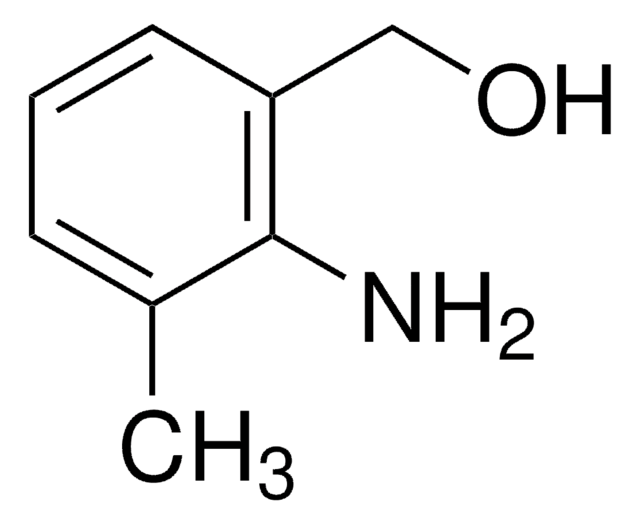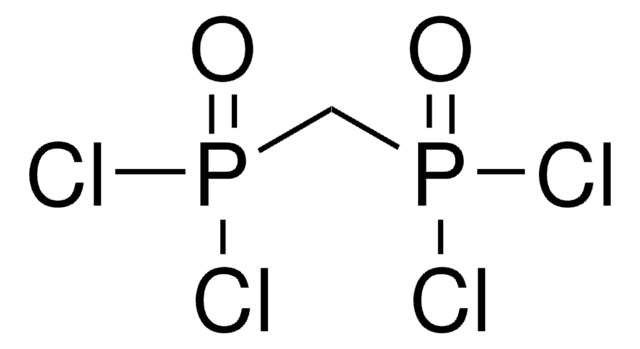All Photos(1)
About This Item
Linear Formula:
HO(CH2)5CO2C2H5
CAS Number:
Molecular Weight:
160.21
MDL number:
UNSPSC Code:
12352100
PubChem Substance ID:
NACRES:
NA.22
Recommended Products
Assay
97%
form
liquid
refractive index
n20/D 1.437 (lit.)
bp
127-128 °C/12 mmHg (lit.)
density
0.985 g/mL at 25 °C (lit.)
functional group
ester
hydroxyl
SMILES string
CCOC(=O)CCCCCO
InChI
1S/C8H16O3/c1-2-11-8(10)6-4-3-5-7-9/h9H,2-7H2,1H3
InChI key
HYXRUZUPCFVWAH-UHFFFAOYSA-N
Related Categories
General description
Ethyl 6-hydroxyhexanoate is an ethyl ester. Its concentration in bordeaux red wines has been evaluated. Two-step preparation of ethyl 6-hydroxyhexanoate via hydrolysis of e-caprolactone has been reported.
Application
Ethyl 6-hydroxyhexanoate is suitable for use in the synthesis of series of model phenol carbonate ester prodrugs having fatty acid-like structures. It may be used in the preparation of alkyl triflates. It may be used in the synthesis of ethyl 6-(trifluoromethylsulfonyloxy)hexanoate.
Storage Class Code
10 - Combustible liquids
WGK
WGK 3
Flash Point(F)
Not applicable
Flash Point(C)
Not applicable
Personal Protective Equipment
dust mask type N95 (US), Eyeshields, Gloves
Choose from one of the most recent versions:
Certificates of Analysis (COA)
Lot/Batch Number
Don't see the Right Version?
If you require a particular version, you can look up a specific certificate by the Lot or Batch number.
Already Own This Product?
Find documentation for the products that you have recently purchased in the Document Library.
Customers Also Viewed
A straightforward preparation of primary alkyl triflates and their utility in the synthesis of derivatives of ethidium.
Ross SA, et al.
Journal of the Chemical Society. Perkin Transactions 1, 4, 571-574 (2000)
Shenliang Wang et al.
Journal of combinatorial chemistry, 10(3), 460-465 (2008-03-18)
The diversity-oriented fluorescence library approach (DOFLA) has emerged and found applications in various fields to meet the acute demands for novel fluorescence sensors. The power of this approach has been demonstrated with the impressive discoveries of novel sensors for polymers
Bénédicte Pineau et al.
Journal of agricultural and food chemistry, 57(9), 3702-3708 (2009-03-31)
A preparative HPLC method, which preserves wine aromas and isolates fruity characteristics in specific fractions, was applied to red wine aroma extracts. Various odor-active zones were detected in typical fractions by GC-O analysis of their extracts. Through further GC-MS analyses
V V Komissarov et al.
Bioorganicheskaia khimiia, 34(1), 75-82 (2008-03-28)
New polymethylene derivatives of nucleic bases with beta-diketo function in omega-position were prepared by alkylation of uracil, thymine, and cytosine. Their physicochemical properties and effect on the E. coli uridine phosphorylase were studied.
Jesper Østergaard et al.
Molecules (Basel, Switzerland), 12(10), 2396-2412 (2007-11-06)
A series of model phenol carbonate ester prodrugs encompassing derivatives with fatty acid-like structures were synthesized and their stability as a function of pH (range 0.4 - 12.5) at 37 degrees C in aqueous buffer solutions investigated. The hydrolysis rates
Our team of scientists has experience in all areas of research including Life Science, Material Science, Chemical Synthesis, Chromatography, Analytical and many others.
Contact Technical Service












